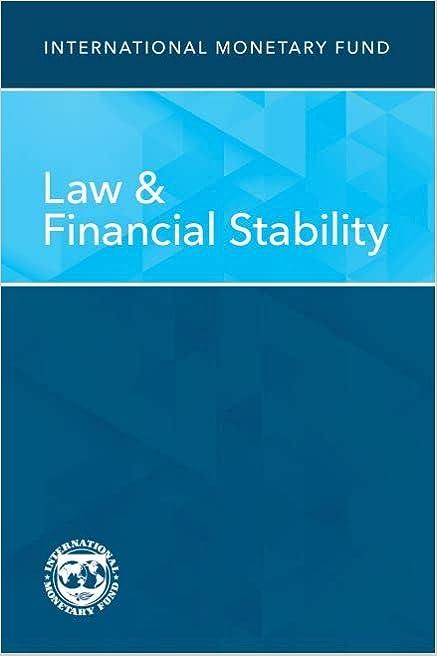Question
1. It is now January 1, 2018, and you are considering the purchase of an outstanding bond that was issued on January 1, 2016. It
1. It is now January 1, 2018, and you are considering the purchase of an outstanding bond that was issued on January 1, 2016. It has a 8% annual coupon and had a 30-year original maturity. (It matures on December 31, 2045.) There is 5 years of call protection (until December 31, 2020), after which time it can be called at 109-that is, at 109% of par, or $1,090. Interest rates have declined since it was issued, and it is now selling at 119.12% of par, or $1,191.20.
a): What is the yield to maturity? Do not round intermediate calculations. Round your answer to two decimal places. % What is the yield to call? Do not round intermediate calculations. Round your answer to two decimal places. %
b): If you bought this bond, which return would you actually earn? Select the correct option.
Investors would not expect the bonds to be called and to earn the YTM because the YTM is less than the YTC.
Investors would expect the bonds to be called and to earn the YTC because the YTC is less than the YTM.
Investors would expect the bonds to be called and to earn the YTC because the YTM is less than the YTC.
Investors would expect the bonds to be called and to earn the YTC because the YTC is greater than the YTM.
Investors would not expect the bonds to be called and to earn the YTM because the YTM is greater than the YTC.
c):-Select Suppose the bond had been selling at a discount rather than a premium. Would the yield to maturity have been the most likely return, or would the yield to call have been most likely?
Investors would expect the bonds to be called and to earn the YTC because the YTC is greater than the YTM.
Investors would expect the bonds to be called and to earn the YTC because the YTC is less than the YTM.
Investors would not expect the bonds to be called and to earn the YTM because the YTM is greater than the YTC.
Investors would not expect the bonds to be called and to earn the YTM because the YTM is less than the YTC.
Investors would expect the bonds to be called and to earn the YTC because the YTM is less than the YTC.
d): Harrimon Industries bonds have 6 years left to maturity. Interest is paid annually, and the bonds have a $1,000 par value and a coupon rate of 10%.
What is the yield to maturity at a current market price of
$848? Round your answer to two decimal places. %
$1,144? Round your answer to two decimal places. %
Step by Step Solution
There are 3 Steps involved in it
Step: 1

Get Instant Access to Expert-Tailored Solutions
See step-by-step solutions with expert insights and AI powered tools for academic success
Step: 2

Step: 3

Ace Your Homework with AI
Get the answers you need in no time with our AI-driven, step-by-step assistance
Get Started


